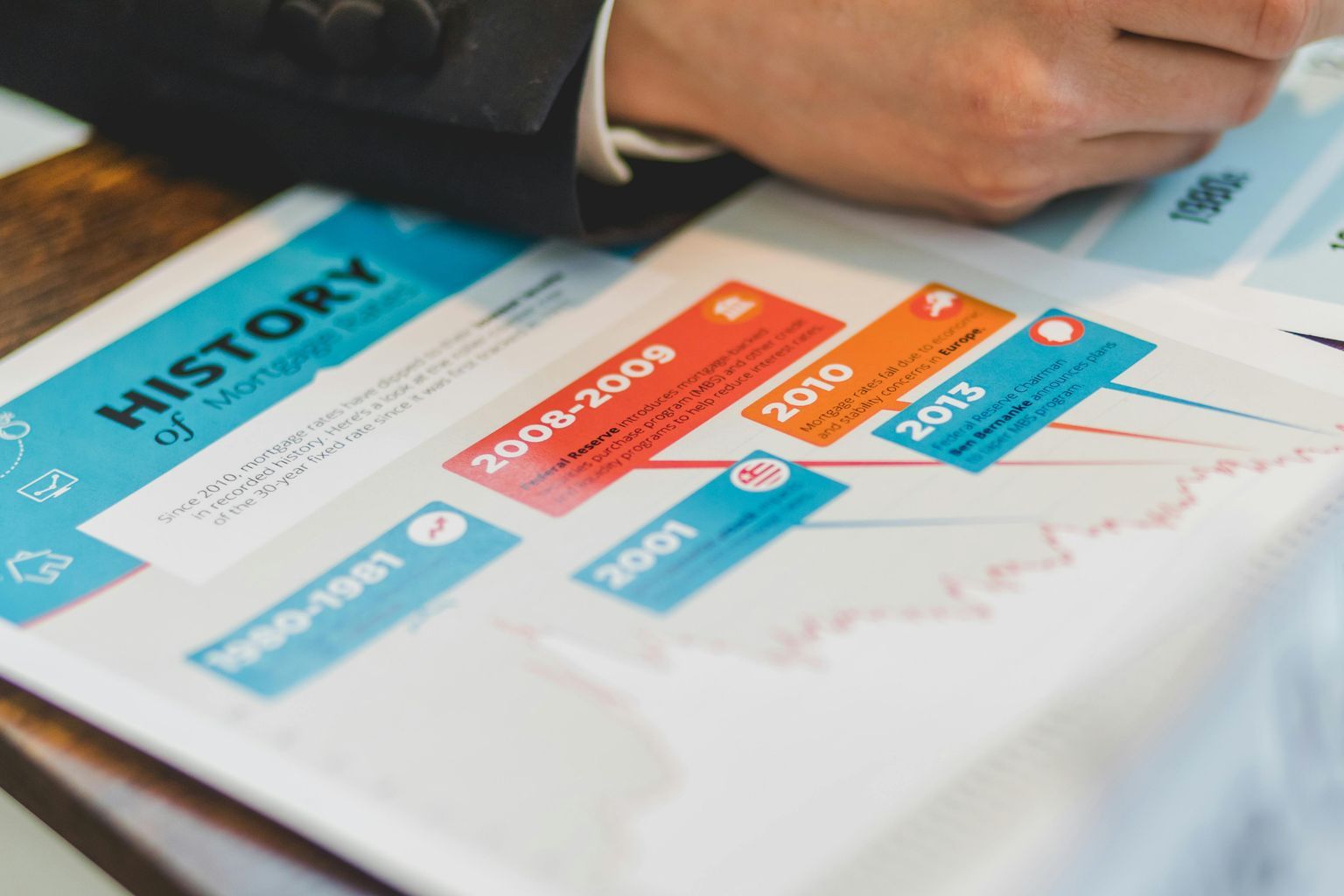Understanding your mortgage affordability is crucial when purchasing a home. Take into account your income, debts, down payment, and interest rates to establish a reasonable housing budget.
Let’s examine how these factors influence your path to homeownership.
Calculating Your Mortgage Affordability
Income vs. Expenses
The individual’s monthly income is important for knowing if they can afford a mortgage loan.
Calculating total monthly income before taxes helps to see how much can go to mortgage payments.
This is essential when thinking about the home’s price and other monthly homeownership expenses.
Understanding the mortgage loan’s interest rate is also important.
It affects how much the borrower will pay over the loan term.
To make a good choice, individuals should look at different financing choices.
They can see options with low down payments or down payment help.
Using a mortgage calculator and exploring affordable mortgages can help find a plan that fits their income and finances.
Debt-to-Income Ratio
The total monthly income before taxes is important for determining how much house someone can afford. It’s crucial to understand this income when thinking about buying a home and getting a mortgage.
Calculating the debt-to-income ratio is also vital. This ratio considers all monthly debt payments, like credit cards, student loans, and car loans. It helps lenders decide if someone can handle monthly payments and pay back the loan.
Considering the debt-to-income ratio and total monthly income together lets individuals look at financing options. They can find low down payment programs and affordable mortgage options that fit their finances.
Using a mortgage calculator is a good idea, too. It can give an estimate of how much home someone can afford based on factors like the loan amount, interest rate, and financing options.
Looking into down payment assistance programs and different loans can also help make buying a home more affordable.
Factors Affecting Mortgage Affordability
Credit Score
When thinking about getting a mortgage, you need to think about how much money you make each month, how much money you can put down upfront, and the interest rate. These factors help you figure out the kind of house you can buy.
To make this process easier, you can use a mortgage calculator. It helps you see different scenarios based on your income and the home’s price. It’s a good way to understand your options.
You can also look into programs that offer low down payments or help with down payments. This can make it easier for you to buy a home that fits your budget.
By calculating the main amount, checking out financial help options, and finding the best financing for you, you can make smart choices when purchasing a home.
Down Payment
A down payment is the cash amount a borrower pays upfront to purchase a home. It’s usually used with mortgage loans to finance the remaining purchase price.
Most home loans require at least a 3% down payment. However, a 20% down payment is considered ideal for better affordability, lower monthly payments, and avoiding private mortgage insurance.
For a home priced at $250,000, a 3% down payment would be $7,500. A 20% down payment would be $50,000. Larger down payments reduce the loan amount, leading to lower monthly payments and potential interest savings.
Various financial assistance programs, grants, and loans can help with making a down payment. These programs cater to different financial situations, offering personalized financing options to make homeownership more accessible and affordable.
Interest Rates
Factors affecting mortgage interest rates:
-
The borrower’s credit score, down payment amount, and current market conditions are key.
-
A higher credit score often means lower interest rates for a more affordable loan.
-
Opting for a smaller down payment may lead to a higher interest rate to mitigate risk.
-
Using a mortgage calculator can show how different rates impact total loan cost.
-
Input purchase price, monthly income, and interest rate to see payment changes.
-
Exploring various financing options can help you find affordable mortgage solutions.
-
Personalized financing can estimate how interest rates affect total mortgage costs.
Tips for Improving Mortgage Affordability
Increase Income
Individuals can take steps to boost their income and make owning a home more affordable:
-
Look for ways to increase monthly income through side jobs, freelance work, or part-time roles.
-
Higher-income can help save for a down payment, manage mortgage payments, and improve overall affordability.
-
Use mortgage calculators to see how different interest rates and loans affect affordability.
-
Customize details like purchase price, down payment, and interest rate for personalized financing options.
-
Explore low-down payment programs and financial assistance options to make the home-buying more accessible.
-
Understand principal amount, borrower obligations, and financing choices to make informed decisions and reach homeownership goals.
Reduce Debt
To reduce debt and improve financial situations, individuals can take the following steps:
-
Increase monthly payments
-
Consolidate debts
-
Negotiate lower interest rates
Focus on paying off debts with higher interest rates first. Create a budget to allocate more funds towards debt repayment. By doing this, borrowers can make progress in reducing their overall debt burden.
Explore resources such as:
-
Debt management programs
-
Financial counseling services
-
Debt repayment calculators
These tools can provide guidance on the most efficient ways to tackle debt. For those looking to buy a home while managing debt, consider:
-
Low down payment mortgage options
-
Understanding the impact of interest rates on loan terms
-
Utilizing financial assistance programs
Research personalized financing options and affordable mortgage programs to work towards achieving homeownership goals while effectively managing debt.
Save for a Larger Down Payment
When trying to save for a bigger down payment, it’s important to think about different ways to increase savings.
Here are some steps to consider:
-
Use a mortgage affordability calculator to figure out the target purchase price based on your monthly income.
-
This will help you know how much you need for a down payment.
-
Explore low down payment choices and down payment aid programs to help you reach your goal.
-
Understand the principal amount, interest rate, and financing options for mortgage loans to create a budget that works for you.
-
Look into personalized financing choices and affordable mortgage programs to work towards a larger down payment that fits your monthly income.
-
By getting financial help and checking out different loan options, you can get the money needed for a down payment on a home.
Questions to Ask Before Determining Your Mortgage Affordability
Can I Afford the Monthly Payments?
The total monthly income for mortgage payments is crucial. It’s important to know current expenses like car payments, credit card bills, and student loans. This helps gauge the financial situation accurately.
The debt-to-income ratio is significant. A lower ratio means a healthier financial position and better chances to afford mortgage payments.
When looking at financing, explore low-down payment programs and financial aid. This helps with the upfront costs of buying a home. Understanding personalized financing and finding affordable mortgage options are key to aligning purchase price, interest rate, and principal amount with total monthly income for a comfortable homeownership experience.
What Other Costs Should I Consider?
When determining mortgage affordability, it’s important to think about:
-
The down payment, interest rate, and total monthly income.
-
These factors help calculate how much house a borrower can afford.
Don’t forget about potential expenses like:
-
Property taxes, homeowner’s insurance, and private mortgage insurance.
Using a mortgage calculator can:
-
Estimate monthly payments based on the purchase price and financing options.
Exploring programs for low down payments and financial assistance can:
-
Make buying a home more affordable.
Understanding loan options and personalized financing is:
-
Essential to ensure payments align with monthly income and financial goals.
Considering these variables helps individuals:
-
Make informed decisions on mortgage affordability.
Calculating Your Maximum Mortgage Amount
Using a Mortgage Affordability Calculator
When figuring out how much house you can afford, consider your monthly income, down payment, and interest rate.
Use a mortgage affordability calculator. Enter your total monthly income, down payment, and desired purchase price to get an estimate of how much you can borrow.
These calculators look at your gross income and the yearly percentage of the principal amount needed for a mortgage loan.
Check out low-down-payment programs and financial aid to make buying a home easier.
Understanding your financing options helps you decide on mortgage loans that work best for your finances.
Consulting with a Mortgage Lender
When consulting with a mortgage lender, individuals should consider the following factors:
-
Total monthly income
-
Down payment amount
-
The purchase price of the home
-
Interest rate
These elements are important in determining affordability and how much they can borrow through a mortgage loan.
Using a mortgage calculator, borrowers can input their monthly income, down payment amount, and desired purchase price to estimate their maximum mortgage amount.
Seeking financial assistance or exploring low-down payment programs can provide more affordable mortgage options for homebuyers.
Mortgage lenders can offer personalized financing options tailored to individual circumstances and financial goals to help borrowers understand their borrowing capacity. Consult with a professional mortgage broker such as Champion Mortgage to get access to the best lenders.
FAQ
What factors should I consider when determining my mortgage affordability?
Consider factors such as your income, expenses, credit score, and down payment amount when determining mortgage affordability. Calculate your debt-to-income ratio and ensure your monthly housing costs do not exceed 28% of your gross income. Shop around for the best interest rates.
How do lenders calculate my maximum mortgage affordability?
Lenders typically determine your maximum mortgage affordability by analyzing your income, debts, credit score, and other financial factors. As a general rule, your monthly housing costs should not exceed 28% of your gross monthly income. Example: If your gross monthly income is $5,000, your housing costs shouldn’t exceed $1,400.
How can I improve my mortgage affordability?
To improve your mortgage affordability, consider increasing your down payment, reducing your debt-to-income ratio, and improving your credit score. For example, saving more for a larger down payment or paying off outstanding debts can help make you a more attractive borrower to lenders.
Is it better to make a larger down payment to improve my mortgage affordability?
Yes, making a larger down payment can improve your mortgage affordability by reducing your loan amount, lowering your monthly payments, and potentially securing a better interest rate. For example, a 20% down payment could help you avoid private mortgage insurance (PMI) costs.
What resources are available to help me understand and improve my mortgage affordability?
Resources such as online mortgage calculators, financial advisors, budgeting tools, and credit counseling services can help you understand and improve your mortgage affordability.
Connect with Champions Mortgage for a personalized affordability assessment. Our expert advisors are ready to guide you towards securing the best mortgage for your financial situation. Start your path to homeownership today!







